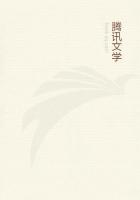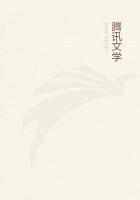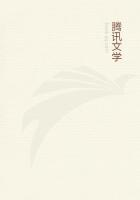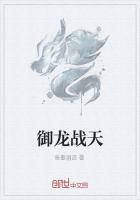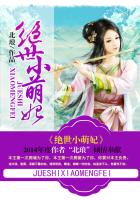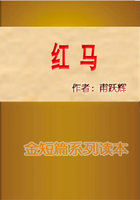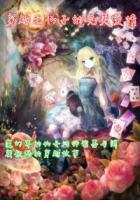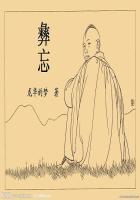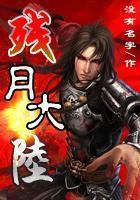--O! there is an intensity here, a note of passion beyond the deepest of Herrick's. This tone (whether from temperament or circumstance or scheme of art), is wanting to the HESPERIDES and NOBLE NUMBERS: nor does Herrick's lyre, sweet and varied as it is, own that purple chord, that more inwoven harmony, possessed by poets of greater depth and splendour,--by Shakespeare and Milton often, by Spenser more rarely. But if we put aside these 'greater gods' of song, with Sidney,--in the Editor's judgment Herrick's mastery (to use a brief expression), both over Nature and over Art, clearly assigns to him the first place as lyrical poet, in the strict and pure sense of the phrase, among all who flourished during the interval between Henry V and a hundred years since. Single pieces of equal, a few of higher, quality, we have, indeed, meanwhile received, not only from the master- singers who did not confine themselves to the Lyric, but from many poets--some the unknown contributors to our early anthologies, then Jonson, Marvell, Waller, Collins, and others, with whom we reach the beginning of the wider sweep which lyrical poetry has since taken. Yet, looking at the whole work, not at the selected jewels, of this great and noble multitude, Herrick, as lyrical poet strictly, offers us by far the most homogeneous, attractive, and varied treasury. No one else among lyrists within the period defined, has such unfailing freshness: so much variety within the sphere prescribed to himself: such closeness to nature, whether in description or in feeling: such easy fitness in language: melody so unforced and delightful. His dull pages are much less frequent: he has more lines, in his own phrase, 'born of the royal blood': the Inflata rore non Achaico verba are rarer with him: although superficially mannered, nature is so much nearer to him, that far fewer of his pieces have lost vitality and interest through adherence to forms of feeling or fashions of thought now obsolete. A Roman contemporary is described by the younger Pliny in words very appropriate to Herrick: who, in fact, if Greek in respect of his method and style, in the contents of his poetry displays the 'frankness of nature and vivid sense of life' which criticism assigns as marks of the great Roman poets. FACIT VERSUS, QUALES CATULLUS AUT CALVUS. QUANTUM ILLIS LEPORIS, DULCEDINIS, AMARITUDINIS AMORIS!
INSERIT SANE, SED DATA OPERA, MOLLIBUS LENIBUSQUE DURIUSCULOS QUOSDAM; ET HOC, QUASI CATULLUS AUT CALVUS. Many pieces have been, here refused admittance, whether from coarseness of phrase or inferior value: yet these are rarely defective in the lyrical art, which, throughout the writer's work, is so simple and easy as almost to escape notice through its very excellence. In one word, Herrick, in a rare and special sense, is unique.
To these qualities we may, perhaps, ascribe the singular neglect which, so far as we may infer, he met with in his own age, and certainly in the century following. For the men of the Restoration period he was too natural, too purely poetical: he had not the learned polish, the political allusion, the tone of the city, the didactic turn, which were then and onwards demanded from poetry. In the next age, no tradition consecrated his name; whilst writers of a hundred years before were then too remote for familiarity, and not remote enough for reverence. Moving on to our own time, when some justice has at length been conceded to him, Herrick has to meet the great rivalry of the poets who, from Burns and Cowper to Tennyson, have widened and deepened the lyrical sphere, making it at once on the one hand more intensely personal, on the other, more free and picturesque in the range of problems dealt with: whilst at the same time new and richer lyrical forms, harmonies more intricate and seven-fold, have been created by them, as in Hellas during her golden age of song, to embody ideas and emotions unknown or unexpressed under Tudors and Stuarts. To this latter superiority Herrick would, doubtless, have bowed, as he bowed before Ben Jonson's genius. 'Rural ditties,' and 'oaten flute' cannot bear the competition of the full modern orchestra. Yet this author need not fear! That exquisite: and lofty pleasure which it is the first and the last aim of all true art to give, must, by its own nature, be lasting also. As the eyesight fluctuates, and gives the advantage to different colours in turn, so to the varying moods of the mind the same beauty does not always seem equally beautiful. Thus from the 'purple light' of our later poetry there are hours in which we may look to the daffodil and rose-tints of Herrick's old Arcadia, for refreshment and delight. And the pleasure which he gives is as eminently wholesome as pleasurable. Like the holy river of Virgil, to the souls who drink of him, Herrick offers 'securos latices.' He is conspicuously free from many of the maladies incident to his art. Here is no overstrain, no spasmodic cry, so wire-drawn analysis or sensational rhetoric, no music without sense, no mere second-hand literary inspiration, no mannered archaism:--above all, no sickly sweetness, no subtle, unhealthy affectation. Throughout his work, whether when it is strong, or in the less worthy portions, sanity, sincerity, simplicity, lucidity, are everywhere the characteristics of Herrick: in these, not in his pretty Pagan masquerade, he shows the note,--the only genuine note,--of Hellenic descent. Hence, through whatever changes and fashions poetry may pass, her true lovers he is likely to 'please now, and please for long.' His verse, in the words of a poet greater than himself, is of that quality which 'adds sunlight to daylight'; which is able to 'make the happy happier.' He will, it may be hoped, carry to the many Englands across the seas, east and west, pictures of English life exquisite in truth and grace:--to the more fortunate inhabitants (as they must perforce hold themselves!) of the old country, her image, as she was two centuries since, will live in the 'golden apples' of the West, offered to us by this sweet singer of Devonshire. We have greater poets, not a few; none more faithful to nature as he saw her, none more perfect in his art;--none, more companionable:--
F. T. P.
Dec. 1876
** C H R Y S O M E L A **
A SELECTION FROM THE LYRICAL POEMS OF ROBERT HERRICK

